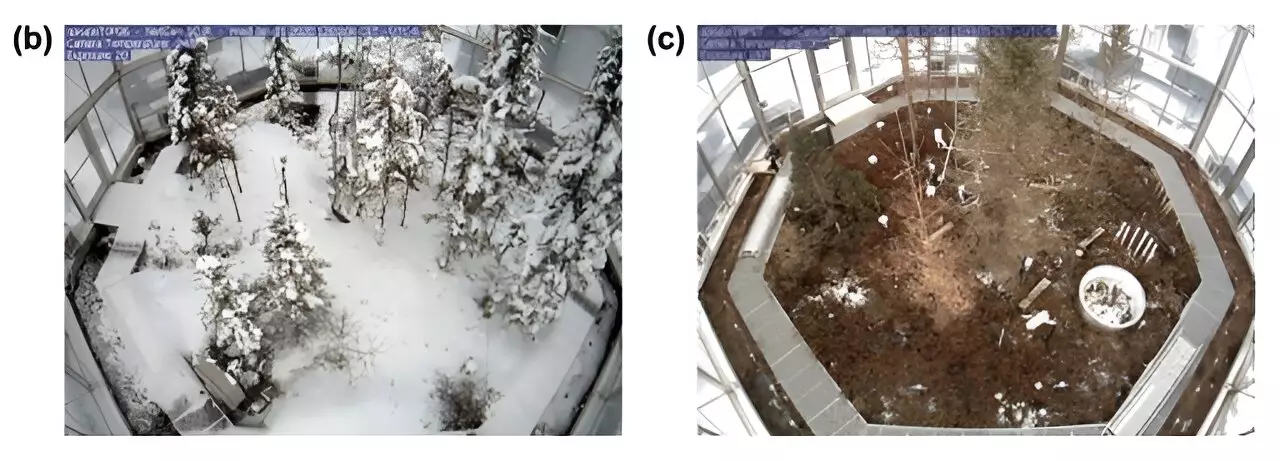The consequences of warming temperatures and reduced snowpack in northern forests are more severe than previously thought. Research conducted by Northern Arizona University ecologist Andrew Richardson reveals that even slight temperature increases can lead to significant reductions in snowpack, which has a domino effect on ecosystems. The findings of this study, published in the Journal of Geophysical Research: Biogeosciences, shed light on the accelerated changes occurring in boreal forests across the globe.
Snow is a critical component of winter in northern ecosystems, playing a vital role in regulating temperatures and supporting plant life. However, the decrease in snowpack due to rising temperatures results in more light and heat being absorbed into the soil. This cycle leads to warmer air temperatures, increased snowmelt, and altered ecosystem dynamics. The boreal forest, characterized by its unique biodiversity and distinct ecosystems, is facing unprecedented challenges as a result of these changes.
To better understand the impacts of temperature increases on snowpack and ecosystems, researchers utilized the U.S. Department of Energy’s SPRUCE Experiment in northern Minnesota. By manipulating air and soil temperatures within experimental enclosures, they observed how changes in temperature affected snowmelt and ecosystem health. The results were alarming, as even minor temperature increases resulted in dramatic reductions in snow cover, leading to plant stress and mortality.
Climate Modeling Implications
The findings of this study have significant implications for climate modeling and predictions. By isolating temperature as the sole variable, researchers were able to gauge the effects of warming temperatures on snow cover duration and extent. This data provides valuable insights into how current climate models may be underestimating the impacts of temperature changes on ecosystems. It also serves as a warning for regions like northern Arizona, where similar trends of reduced snowpack and increased rainfall may soon become a reality.
As we look towards the future, the implications of reduced snowpack on northern forest ecosystems are concerning. The shift towards low- or no-snow winters has the potential to disrupt entire ecosystems, leading to frozen soils, damaged plant tissues, and diminished spring runoff. While some may view the decline in snow as a positive development, the reality is that it could have far-reaching consequences for forests and the communities that depend on them.
The ongoing cycle of warming temperatures and reduced snowpack in northern forests is a pressing issue that requires immediate attention. The rapid changes taking place in boreal forests serve as a stark reminder of the fragile balance between climate and ecosystems. By gaining a better understanding of these dynamics, we can work towards implementing solutions that mitigate the impacts of reduced snowpack and safeguard the health of our planet’s vital forest ecosystems.


Leave a Reply